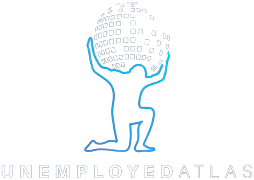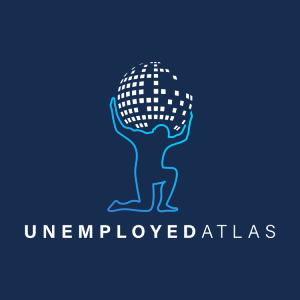Up until about 2 years ago I used to post on Facebook ALOT. Like annoyingly a lot to anyone that wasn’t me I’m sure. Most of the time it was just funny observations or political thoughts (yeah, I know…cringe) but there was never any real direction with the posts or thoughts I just wanted to get my thoughts out into the ether. In the back of my mind I always knew it was stupid, mostly because I did not make 1 single cent from anything I shared, but I continued because who doesn’t like a bunch of dopamine hitting red like notifications? It wasn’t until I really got to understand Bitcoin that it suddenly made sense to me why I never really shared anything consequential on the platform and why in the back of my mind I knew it was lets just say, one sided.
Before I finish my story, lets get to the heart of what Web 3.0 is. I’ll keep this as short as possible which should be easy because I’m not a technical guy. To start, let’s talk about how we got to Web 3.0. You may be asking, much like myself, isn’t the internet just like ya know, the internet? Why do we need different versions? The answer is that from a users perspective you are correct, an end user will just be using well, the internet. The differences come in who controls the information on the internet. If data is the new oil, Web 3.0 just allowed as all to be West Texas Oil Tycoons. Let me explain.
Web 1.0 was the creation of the internet. I forget the actually story of how it was created…Al Gore, the Military, Stanford, something with aliens? Regardless, it exist, we use it and it has changed the lives of millions of people across the planet. Web 2.0 is all the services that we now use today that were built on top of the internet. These services include Facebook, Amazon, Google, Baidu, and countless others but you get the gist, our modern day overlords and controllers of information. Despite the general disdain we have garnered over recent years for these companies, they have used Web 2.0 to connect the world, enable same day delivery from the comfort of your home, and give anyone access to the worlds library from the palm of your hand. Truly amazing services and products that have transformed the way we connect, learn and do business. So with all the positives these Web 2.0 companies have created, why look to improve? As with anything in life, these services have come with massive trade offs.
In exchange for all these “free” services we have volunteered our information and data over to these companies. As a result these companies now control the internet. When I post my funny observations on Facebook I don’t own those observations anymore, that information now belongs to Facebook. Facebook then turns around and sells my information to companies that are buying ads from the platform and guess how much Facebook gives me for my creativity, yup Zero. Using the internet these companies have grown to literally billions of users in a matter of a decade. In doing so they have amassed fortunes and have hired the best talent, have the best algorithms and have the most computing power. Hey lets not get it twisted, I’m a capitalist, good for them, their stocks have made a lot of people very wealthy however, you don’t have to think very hard to realize why these companies having all this control and power may be a problem.
As we’ve seen recently they aren’t exactly transparent with how they use our data and why they censor certain material and people while allowing others to say whatever they please. If two companies, Facebook and Google, control the majority of data and information shared on the internet that is not only bad for the creators of the data and information, it is also bad for the consumers of the data information. Remember the old saying in tech, “If it’s free, then you’re the product”…well in an attention economy, where the company providing the information controls what you see, you have to ask yourself, am I buying shown the truth or being sold an add? Expanding on this thought even further we can reach the conclusion that these companies have the power to censor information and control elections, not that they ever would or anything after all Googles slogan is “Don’t be evil.” I mean come the fuck on, its literally right in your face “Don’t be evil” wink wink, we do evil shit all day and there is nothing you can do about it your worthless pleb, eat the garbage we feed you and be happy. Haha sorry, I digress…
So what do we do about it? Enter Web 3.0. In 2009 with the introduction of the decentralized Bitcoin Blockchain the world was introduced to the solution of centralized systems and power structures. You see the main element that allowed these companies to gain so much power and influence was that Web 2.0 companies utilize the internet in a centralized manner. All the information and data gathered by these companies is controlled by one person or company. The entity makes the rules, controls the information, and if you don’t like it well tough shit because there really isn’t anywhere else to go. The Web 2.0 economy is a winner take all economy. Once a company has the resources ie. talent, computing power, algos, and has scaled, it makes it nearly impossible for anyone else to compete. We aren’t going to go into the technicals of Web 2.0 vs Web 3.0 per say but just understand for the sake of this article that centralization is the driving force behind much of the power and influence of Web 2.0 companies.
With the introduction of the Bitcoin Blockchain a new door was opened for decentralized platforms to start working on the internet. Web 3.0 is essentially decentralized platforms running on the blockchain, again not going to go super into the weeds on this but it doesn’t have to be the Bitcoin Blockchain there are others such as the Ethereum Blockchain where much of the innovation is happening. What does this mean? Well, put simply, Power to the People!
Web 3.0 platforms and applications built on the blockchain are decentralized meaning they are not controlled by any one company or person. This means that developers can create apps that are open source and profitable. That the community or the users of an application or platform control the governance of, have a stake in and can vote on the applications or platforms direction. If you don’t like what Web 3.0 version of google is doing, you actually can vote and let them know, you have influence over them, not the other way around. Perhaps the most important development that is happening on Web 3.0 is the ability to build in censorship resistance. Free flowing information uninfluenced by a corporations quarterly stock report or political parties next bide for power. This is remarkable!
In Web 2.0 we relied on trusted third parties or middle men to make sure our payments were received and our information was not stolen. PayPal, American Express, Visa, Discover etc were our payment systems. Google Cloud and Amazon Web Services were our storage systems. Web 2.0 monetized by selling our information in the form of ads. Web 3.0 aims to improve on this by using Bitcoin and other cryptocurrencies like stable coins for payments. Our information will be stored not on centralized servers owned by companies like Amazon or Google but spread out in a decentralized manner all over the world on the IPFS. Web 3.0 will monetize based on token models, not by selling our information.
It is so promising for the individual it makes me excited for every human alive that will get to participate in the Web 3.0 economy. So, why should you care? For the first time in human history you will get to actually own the content your create, monetize it for yourself, and be allowed to express anything you feel or think in a decentralized censorship resistant way. The content creators and entrepreneurs of the world will be able to bypass the middlemen of Web 2.0 and go straight to their consumers. Think of the impact this will have for an industry such as Musicians. No more record labels taking a majority of their wealth, T Swift I’m looking at you girl. Your creation is yours and you can sell it directly to your fans. Financial markets will be turned upside down. Banks will be forced to either adapt or die as individuals at scale will be able to loan each other money collateralized by smart contracts and crypto assets in a completely trustless platform. Your financial background won’t matter to the extent there is no person to have an opinion or judgement based on what they know about you. And yes, I’m talking about race and sex here too, Web 3.0 completely levels the playing field. Artist can create freely knowing that their efforts will reach their audience with no middleman to extract fees and ownership. You will be able to create for yourself and your audience and no one else.

Why should you care? You should care because Web 3.0 is freedom. Freedom not just for some, Freedom for the entire planet connected to the internet. This is something I never would have posted on Facebook. Now I know why and hopefully you do too. There is absolutely no reason to continue to give these companies our information, thoughts, feelings, pictures and parts of our lives when in return all we get is propaganda and red like notifications. Web 3.0 will allow all of us to monetize our unique set of talent and skills on a trustless, censorship resistant, open source platform with no middlemen or rent seekers trying to influence how we feel or what we can say for their own benefits.
I hope this article gave you at least a general sense of what Web 3.0 is and why you should care. We are at the early stages of something remarkable with Web 3.0 and I can’t wait to keep learning about it and watch it progress over the years. Thanks for taking the time to check this out, see you soon!

